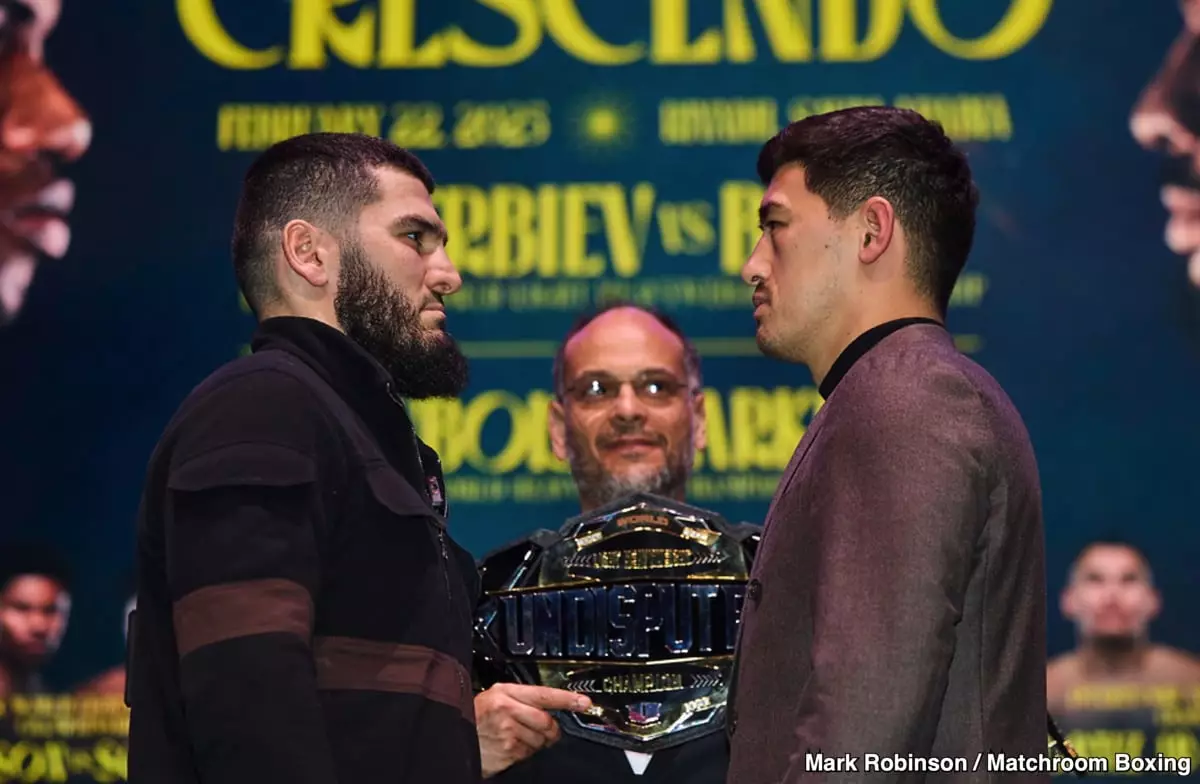At 40 years old, Artur Beterbiev stands at a crossroads that many fighters dread: the unmistakable march of time. Boxing, unlike many other sports, is an unforgiving arena where physical sharpness and reflexes often define careers. Beterbiev’s age isn’t just a statistic; it’s a looming reminder that his prime years are waning. The desire to cement his legacy with a third clash against Dmitry Bivol is both a chance for redemption and a race against Father Time. The longer this fight is delayed, the more it risks losing the allure of a peak-age showdown, turning a potentially historic moment into a faint memory of what could have been.
Age acts as an invisible clock ticking louder with each passing day. Fighters who push beyond their prime often find themselves less explosive, more vulnerable to injuries, and increasingly susceptible to the mental pressures of an aging body. Beterbiev’s frustration echoes a universal truth—delaying a bout, especially in the later stages of a career, isn’t just about logistics; it’s about safeguarding the integrity of the contest and the fighters’ legacies. Waiting too long risks not only losing the element of peak performance but also diminishes the spectacle’s overall significance.
The Political and Promotional Delays: A Strategic Stall or Genuine Obstacle?
Beyond the age crunch, the timing of the fight surfaces contentious issues rooted in logistical and promotional complexities. The latest news suggests the trilogy might be held in Russia instead of the Middle Eastern venue where the first two bouts took place. While fighters often prioritize the best strategic setting to maximize potential victory and payday, these decisions also introduce political, financial, and personal factors that could unnecessarily prolong the saga.
Beterbiev’s social media outburst reveals an impatience that is likely shared by many fans. His pointed question—“How old do I have to be for us to fight?”—underscores a crucial sentiment: fighters are often pawns caught in the chess game of promoters, jurisdictions, and negotiations. The perceived tactics to delay—whether to wear down Bivol or simply to gain an advantage—highlight a problematic aspect of modern boxing where the sport often takes a backseat to business maneuvers.
Is Bivol genuinely strategizing to extend the wait to undermine Beterbiev’s athletic window, or are these delays justified by legitimate obstacles? The reality is muddied, but what remains clear is that the longer delays persist, the more fans’ anticipation diminishes. For a trilogy that promises a defining chapter in the light heavyweight division, the strategic timing seems to be as important as the fighters’ skill itself.
The Legacy and Footprint of the Beterbiev-Bivol Rivalry
At their core, rivalries in boxing are more than just bouts; they are cultural phenomena that build the fighters’ legacies and energize the sport’s fan base. The Beterbiev-Bivol showdown is poised to be one of those marquee matchups—two elite athletes at their physical and mental peaks, poised for a clash that could define their careers and the division’s future.
Yet, in a sport where history remembers moments of perfect timing, the ongoing delays threaten to diminish the competitive ferocity and emotional intensity that could have pushed the rivalry into legendary territory. Fans want to witness the culmination of an intense competition, not a series of missed opportunities driven by negotiations and strategic stalling.
Moreover, Beterbiev’s age makes this third fight all the more critical. The window of opportunity is closing—not just for him personally but for boxing fans who appreciate see-saw battles that test the limits of human resilience. A delayed match risks turning a potential masterpiece into a relic of a bygone era, especially if Bivol, still in his physical prime, capitalizes on the delay to strengthen his position.
My Perspective: Time Isn’t Just Money; It’s Legacy
There’s an undeniable truth in boxing: timing can make or break careers. The Beterbiev-Bivol trilogy symbolizes more than just a series of fights; it’s about legacy, respect, and the pursuit of greatness. Delaying this epic encounter isn’t just about logistical hurdles—it reflects a dangerous complacency that the sport must challenge. Fighters and promoters alike should recognize that fans crave clarity, urgency, and action.
Beterbiev’s open frustration, as expressed on social media, is a reminder that fighters are human beings with limited years to prove their worth. Bivol’s tactics—whether intentional or circumstantial—highlight a pressing need for the sport’s stakeholders to prioritize the integrity of competition over financial or political convenience. The clock is ticking, and boxing’s best stories often come from those who seize their moment before it slips away.
Ultimately, fans want—no, deserve—a decisive, exhilarating showdown between two of the most talented fighters of their generation. Will the trilogy materialize this year, or will it become yet another “what if” in boxing history? The answer hinges on recognizing that time isn’t just a backdrop—it’s the defining element in the narrative of legacy and greatness.

